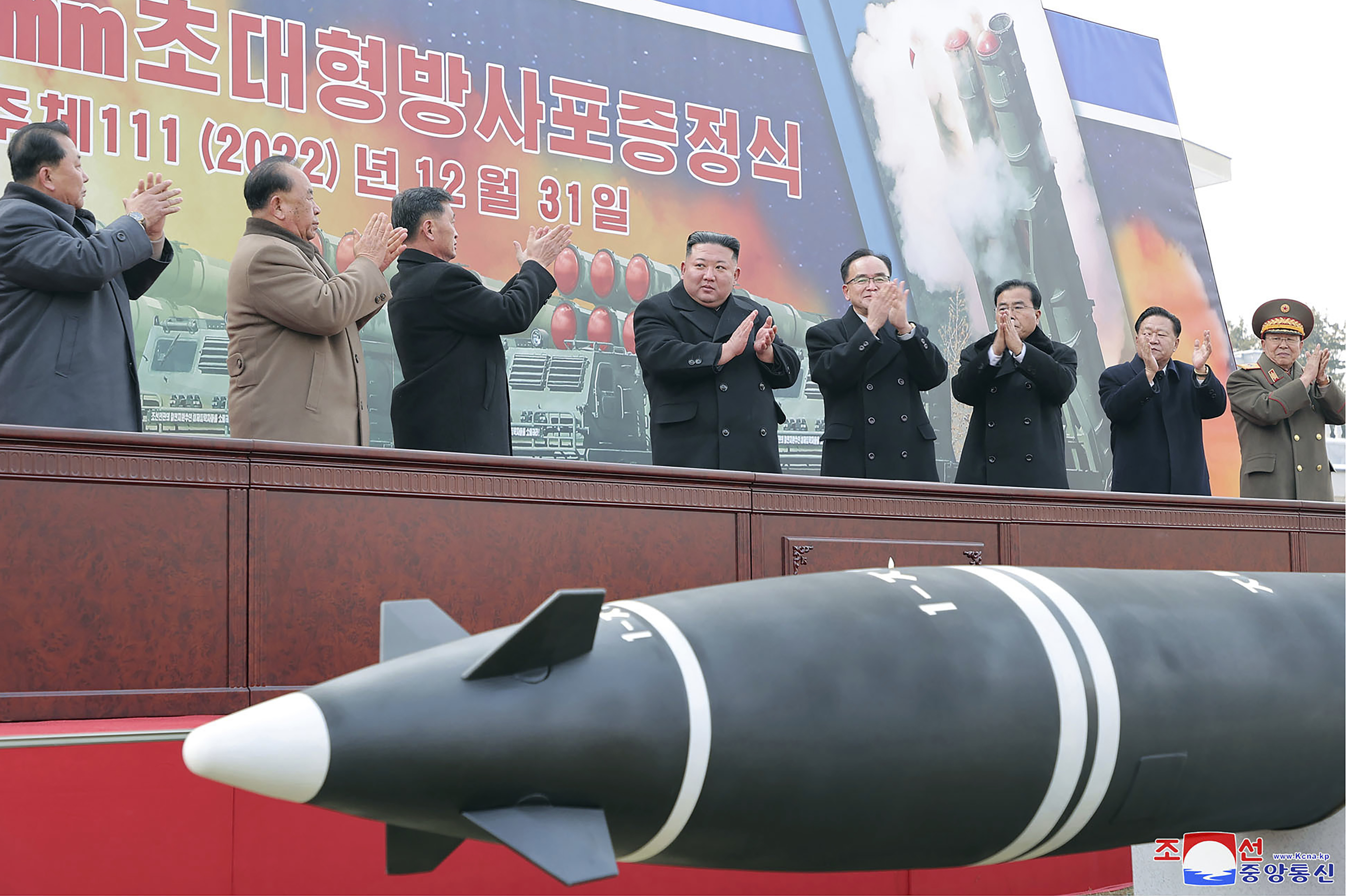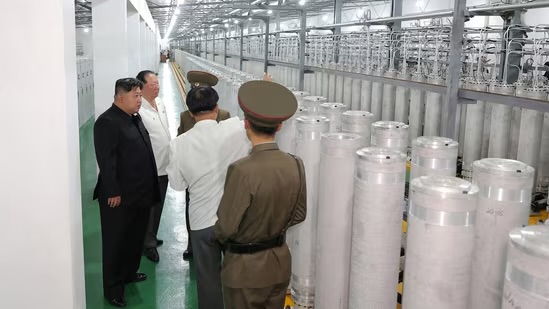Seoul’s Spy Agency Reports North Korea’s Increasing Uranium Reserves for Multiple Nuclear Bombs
North Korea has likely enriched enough uranium to build a “double-digit” number of bombs and is making significant progress in developing more powerful and accurate missiles. This alarming assessment was shared by Seoul’s National Intelligence Service (NIS) during a closed-door parliamentary briefing on Thursday.
The NIS’s report comes on the heels of North Korea’s rare disclosure of a facility dedicated to producing weapons-grade uranium. Earlier this month, North Korean leader Kim Jong Un showcased this secretive site, reiterating his intention to “exponentially” increase his nuclear arsenal. The South Korean intelligence agency interpreted this disclosure as a bold statement of defiance towards Washington, particularly as the U.S. presidential election looms. Additionally, it is seen as a move to highlight Kim’s military accomplishments amid North Korea’s worsening economic situation.

During the briefing, lawmakers were informed that North Korea likely possesses about 70 kilograms (154 pounds) of plutonium and a considerable, yet unspecified, amount of weapons-grade uranium. These quantities are sufficient to produce “at least a double-digit number” of nuclear weapons, according to Lee Seong-kweun, one of the attending lawmakers.
The specific location of the uranium enrichment facility visited by Kim Jong Un on September 13 was not disclosed by North Korean state media. However, the NIS identified it as likely being in Kangson, near Pyongyang. Kangson, along with the Yongbyon nuclear complex, is one of the two known sites linked to North Korea’s uranium enrichment activities. Analysts suggest there could be additional undisclosed sites within the country.
Kim’s visit to the uranium enrichment facility was swiftly followed by a missile test, underscoring North Korea’s ongoing efforts to enhance its missile capabilities. On September 18, North Korean state media reported test launches involving two new types of missiles: one designed to carry “super-large” conventional warheads and the other described as a “strategic” cruise missile, a term typically associated with nuclear-capable weapons. These tests signify North Korea’s intention to improve the precision and lethality of its missile arsenal, particularly targeting South Korean locations.
The NIS, through lawmakers, indicated that North Korea’s missile advancements are aimed at delivering precision strikes against South Korean targets. This continuous development of missile technology adds a new layer of threat to the already volatile Korean.

Speculation about North Korea’s future provocations includes the possibility of a nuclear test ahead of the U.S. presidential election. Such an action would likely be intended to exert pressure on Washington. However, the NIS assessed that North Korea might postpone a nuclear test until after the election, exploring other provocative actions first. These could include test-firing a long-range missile capable of reaching the U.S. mainland or launching a military reconnaissance satellite, strategies designed to challenge U.S. and South Korean responses.
North Korea’s recent activities and the intelligence shared by the NIS have significant implications for regional and global security. The international community, particularly the United States and South Korea, must now consider new strategies to address North Korea’s expanding nuclear and missile capabilities. Diplomatic efforts may need to be intensified to curb North Korea’s nuclear ambitions and bring Pyongyang back to the negotiating table.
The disclosure of the uranium enrichment facility and subsequent missile tests are clear indicators of North Korea’s unwavering commitment to advancing its military capabilities. These developments also serve as a stark reminder of the limitations of current sanctions and diplomatic efforts in curbing North Korea’s nuclear program.
In conclusion, North Korea’s progress in enriching uranium and developing advanced missile systems poses a grave threat to regional stability. The insights provided by Seoul’s spy agency highlight the urgent need for a coordinated international response to mitigate the risks associated with North Korea’s growing nuclear arsenal. As the world watches closely, the actions taken by key stakeholders in the coming months will be crucial in shaping the future security landscape of the Korean Peninsula and beyond.

